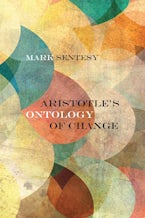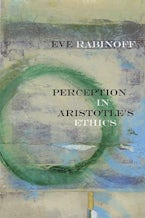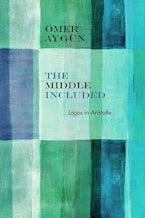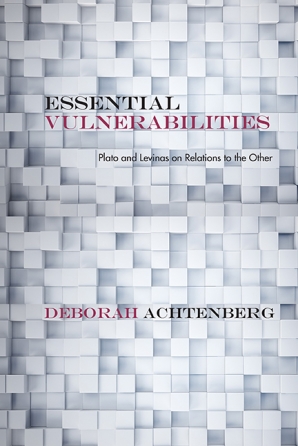Rereading Ancient Philosophy
 Over the past two decades or more, the interpretation of the texts of the great philosophers of the ancient world—Plato and Aristotle primarily, but also other figures such as Heraclitus, Parmenides, or Plotinus—has been undergoing a revolution, as the methods and insights of European thought have been brought to bear on the study of ancient philosophy. Rereading Ancient Philosophy intends to consolidate and advance this growing domain of research, presenting new works or philosophical scholarship that draw upon the insights of contemporary European philosophy for the rereading of ancient philosophy.
Series editor: John Russon
Over the past two decades or more, the interpretation of the texts of the great philosophers of the ancient world—Plato and Aristotle primarily, but also other figures such as Heraclitus, Parmenides, or Plotinus—has been undergoing a revolution, as the methods and insights of European thought have been brought to bear on the study of ancient philosophy. Rereading Ancient Philosophy intends to consolidate and advance this growing domain of research, presenting new works or philosophical scholarship that draw upon the insights of contemporary European philosophy for the rereading of ancient philosophy.
Series editor: John Russon Showing results 1-10 of 12
Filter Results OPEN +

Plato and Aristophanes
Plato and Aristophanes claims that our search for communal justice must start with self-examination. Marina Marren strikes up a conversation between three of Aristophanes’s comedies—Assembly Women, Knights, and Birds—and Plato’s Republic, prompting questions about one’s convictions and actions.
Aristotle's Ontology of Change
This book examines what change is and what it contributes to ontology in the work of Aristotle.
A Companion to Ancient Philosophy
The essays collected in this volume provide an introduction to Ancient Greek and Roman philosophy, from the Pre-Socratics (6th and 5th century BCE) through Plato (429–347 BCE) and Aristotle (384–322 BCE) up to and including the Hellenistic period (322 BCE. to the third century CE).
Philosophy as Agôn
Robert Metcalf's Philosophy as “Agôn” demonstrates that the dynamic contest between interlocutors in the dialogues is essential to Plato’s philosophical purpose.
The Emerging Good in Plato's Philebus
In "The Emerging Good in Plato’s “Philebus," John V. Garner argues that the Socratic pleasures of learning transcend states of being and explicitly embrace the value of change and becoming.
Perception in Aristotle’s Ethics
By establishing and accounting for perception’s place in ethics, Perception in Aristotle's Ethics shows the importance for ethical life of integrating both elements of human nature, the rational and non-rational, the human and the animal.
The Middle Included
The Middle Included is Ömer Aygün's systematic exploration of the meanings of logos throughout Aristotle’s work.
Mortal Imitations of Divine Life
In Mortal Imitations of Divine Life, Diamond offers an interpretation of De Anima, which explains how and why Aristotle places souls in a hierarchy of value. Aristotle’s central intention in De Anima is to discover the nature and essence of soul—the principle of living beings.
Essential Vulnerabilities
In Essential Vulnerabilities, Deborah Achtenberg contests Emmanuel Levinas’s idea that Plato is a philosopher of freedom for whom thought is a return to the self. To the contrary, she agrees, Plato, like Levinas, is a philosopher of the other. While they share the view that human beings are essentially vulnerable and in relation to others, they conceive human vulnerability and responsiveness differently.
The Pedagogy of Wisdom
In this interpretive commentary on Theaetetus, Gregory Kirk makes a major contribution to scholarship on Plato by emphasizing the relevance of the interpersonal dynamics between the interlocutors for the interpretation of the dialogue’s central arguments about knowledge.

Plato and Aristophanes
Plato and Aristophanes claims that our search for communal justice must start with self-examination. Marina Marren strikes up a conversation between three of Aristophanes’s comedies—Assembly Women, Knights, and Birds—and Plato’s Republic, prompting questions about one’s convictions and actions.
Aristotle's Ontology of Change
This book examines what change is and what it contributes to ontology in the work of Aristotle.
A Companion to Ancient Philosophy
The essays collected in this volume provide an introduction to Ancient Greek and Roman philosophy, from the Pre-Socratics (6th and 5th century BCE) through Plato (429–347 BCE) and Aristotle (384–322 BCE) up to and including the Hellenistic period (322 BCE. to the third century CE).
Philosophy as Agôn
Robert Metcalf's Philosophy as “Agôn” demonstrates that the dynamic contest between interlocutors in the dialogues is essential to Plato’s philosophical purpose.
The Emerging Good in Plato's Philebus
In "The Emerging Good in Plato’s “Philebus," John V. Garner argues that the Socratic pleasures of learning transcend states of being and explicitly embrace the value of change and becoming.
Perception in Aristotle’s Ethics
By establishing and accounting for perception’s place in ethics, Perception in Aristotle's Ethics shows the importance for ethical life of integrating both elements of human nature, the rational and non-rational, the human and the animal.
The Middle Included
The Middle Included is Ömer Aygün's systematic exploration of the meanings of logos throughout Aristotle’s work.
Mortal Imitations of Divine Life
In Mortal Imitations of Divine Life, Diamond offers an interpretation of De Anima, which explains how and why Aristotle places souls in a hierarchy of value. Aristotle’s central intention in De Anima is to discover the nature and essence of soul—the principle of living beings.
Essential Vulnerabilities
In Essential Vulnerabilities, Deborah Achtenberg contests Emmanuel Levinas’s idea that Plato is a philosopher of freedom for whom thought is a return to the self. To the contrary, she agrees, Plato, like Levinas, is a philosopher of the other. While they share the view that human beings are essentially vulnerable and in relation to others, they conceive human vulnerability and responsiveness differently.
The Pedagogy of Wisdom
In this interpretive commentary on Theaetetus, Gregory Kirk makes a major contribution to scholarship on Plato by emphasizing the relevance of the interpersonal dynamics between the interlocutors for the interpretation of the dialogue’s central arguments about knowledge.










